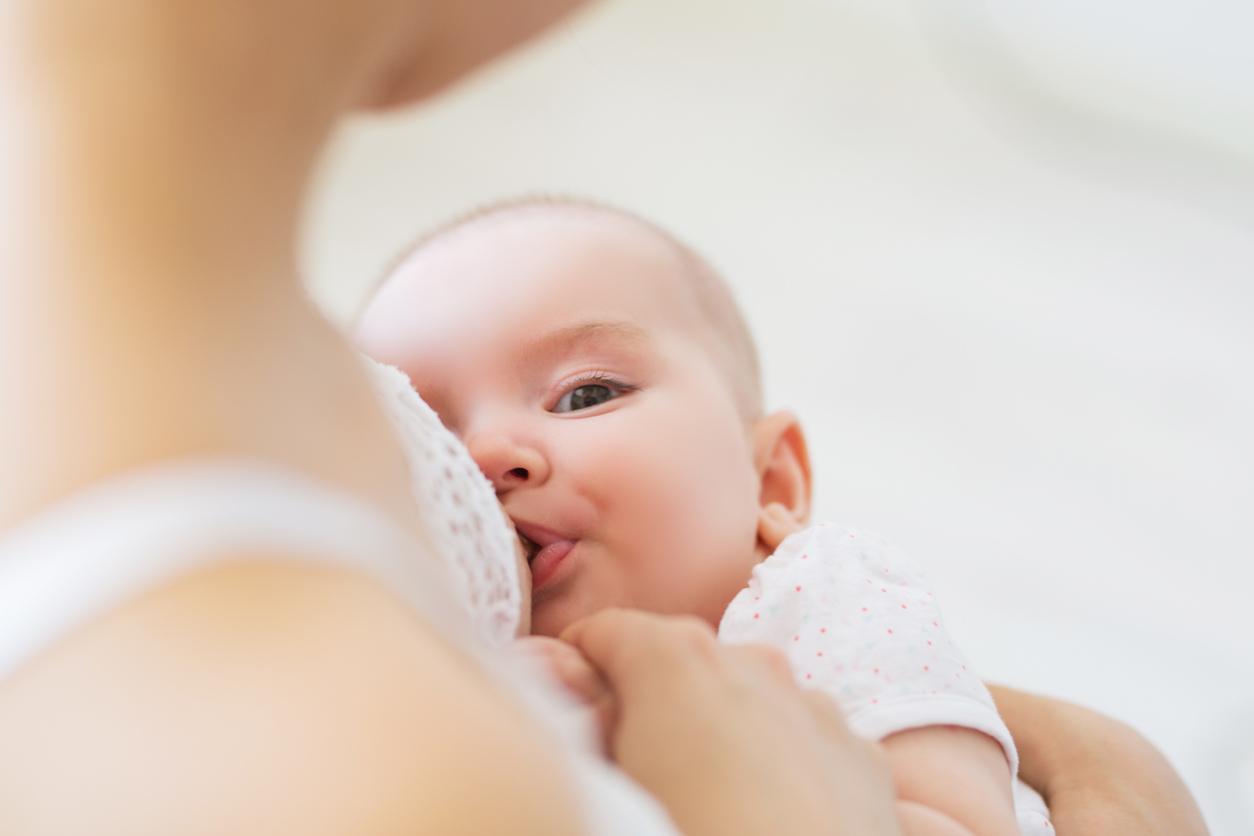The breast milk of women vaccinated against the coronavirus would contain antibodies against the virus and could therefore protect their infant from the disease, according to a recent study.

- In 2016, in France, 52% of newborns benefited from exclusive breastfeeding in the maternity ward, compared to 60% in 2010, according to Health Insurance.
- By the end of November 2022, about 70% of pregnant women in the United States had completed their primary vaccination against Covid-19.
Otitis, gastroenteritis, bronchiolitis and maybe soon Covid-19! According to health insurance, “if breastfeeding lasts at least 3 months, it protects the infant from ENT, digestive and respiratory infections”. Indeed, breast milk is essential for the baby because it is very rich in vitamins, mineral salts, trace elements, sugars, fats, proteins and antibodies, including those of Covid-19 for women who have been vaccinated against the virus. .
Breast milk: “we saw that antibodies were present”
In any case, this is what a study published in the journal Journal of Perinatology. According to the researchers, the breast milk of women vaccinated against Covid-19 would contain antibodies against the virus which would protect infants.
To achieve this result, the authors analyzed the stools of babies. In detail, they isolated the antibodies present in the stool and put them together with cells having the receptor that SARS-CoV-2 uses to enter the cell. Then, the researchers introduced a type of virus that looks like Covid-19 but has the particularity of being fluorescent, and therefore more visible. Thus, if a cell lights up, it is contaminated.
“We saw that when antibodies were present, there were fewer fluorescent cells compared to [cellules] controls where no antibodies were present“, explains Lauren Stafford, one of the authors of the study, in a communicated. In other words, the antibodies would block the entry of the virus into the cell.
Covid-19: effective antibodies even six months after vaccination
But why analyze the stool? The Covid-19 virus also infects the intestine. It is therefore important, especially in infants who cannot be vaccinated, to have antibodies in this area… A visible thing in the feces.
In parallel, to better measure the effectiveness of the antibodies, the researchers also measured and tested those present in the blood plasma – the liquid part of the blood in which the blood cells circulate (red blood cells, white blood cells and platelets) – and in the mothers’ breast milk shortly after vaccination and approximately six months later.
Thus, the scientists discovered that the antibodies in the blood plasma and breast milk of women vaccinated against Covid-19 were very effective in fighting the virus and this, for the latter, even six months after vaccination.
“In our research, we follow the pathway of antibodies, from when they are produced in the mother after vaccination and [jusqu’au] baby’s digestive system, develops Dr. Josef Neu, one of the authors. The next question is whether these babies are less likely to contract Covid-19”. However, he points out that this work provides additional evidence of how vaccination against the virus during pregnancy and breastfeeding can protect both mother and child. In the future, the researchers plan to continue their work by including more participants, since this research included only 25 infants and 37 mothers.


















